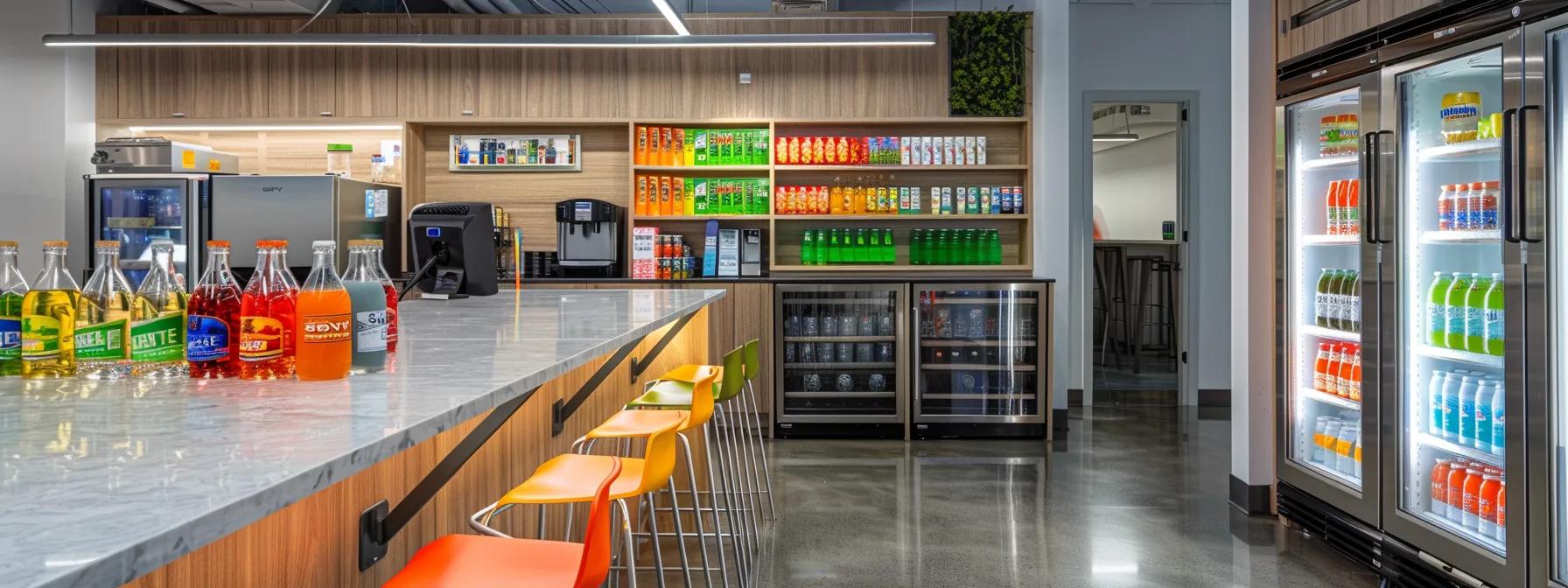In recent years, concerns about the effects of popular soft drinks on liver health have grown. Consumers wonder whether regular Coca Cola consumption directly contributes to liver damage. This article examines potential liver health risks associated with Coca Cola, reviews key research findings, and discusses biochemical mechanisms behind these risks. By understanding the roles of ingredients like sugar and caffeine, individuals can make more informed beverage choices.
Understanding Liver Damage Linked to Coca Cola Consumption
The link between Coca Cola and liver damage centers on its high sugar content, caffeine, and additives. The liver, responsible for metabolizing these substances, can become stressed when overwhelmed. Chronic ingestion of high-sugar beverages may promote non-alcoholic fatty liver disease (NAFLD), with excessive fructose quickly processed into fat. This fat accumulation may trigger inflammation and scarring over time, increasing the risk of liver complications.
Explore the Potential Liver Health Risks of Coca Cola Use
Key liver risks include fatty liver disease, where fat buildup (steatosis) impairs function. High sugar consumption often leads to increased visceral fat and insulin resistance. Diet-induced liver stress triggers inflammatory responses that can progress to fibrosis and cirrhosis. Repeated metabolic overload from fructose worsens liver dysfunction and compromises detoxification.
Identify the Key Ingredients in Coca Cola Affecting Liver Health
Coca Cola contains: • High levels of sugar (typically high-fructose corn syrup) that promote fat synthesis. • Caffeine, which in excessive doses may disrupt normal metabolism. • Acidic additives, preservatives, and artificial flavors that contribute to an unhealthy metabolic profile. Together, these ingredients strain the liver’s ability to metabolize and detoxify substances, potentially leading to chronic issues.
Review Major Studies on Coca Cola and Liver Complications
Research has shown that daily consumption of sugary beverages increases the risk for NAFLD. One study in the Journal of Hepatology found a higher incidence of fatty liver disease among regular soda drinkers. Animal studies similarly reveal that high-fructose drinks cause liver inflammation and fat deposition. Such findings underscore the importance of moderation and suggest that switching to healthier alternatives may improve liver health.
Examine the Biochemical Impact of Sugar on Liver Function
Excess sugar, especially fructose, is converted by the liver into fats via de novo lipogenesis—a process that produces triglycerides and reactive oxygen species (ROS). These ROS contribute to oxidative stress and liver cell damage. Elevated blood sugar triggers insulin release, which may lead to insulin resistance and further fat accumulation. Over time, these biochemical events set the stage for severe liver diseases.
Assess the Relationship Between Caffeine and Liver Health
While moderate caffeine intake can enhance alertness and even offer some protective effects, excessive levels may add to liver stress. Caffeine stimulates metabolic enzymes, and in high quantities—especially when combined with large amounts of sugar—it may disrupt liver metabolism. Thus, the cumulative effect of caffeine and sugar may accelerate liver inflammation and dysfunction.
Discuss Alternative Beverages With Lower Health Risks
Health experts suggest reducing liver risk by choosing beverages with less sugar and fewer artificial additives. Alternatives include water, herbal teas, natural fruit-infused water, and green tea, which is rich in antioxidants. These options help maintain hydration and reduce the liver’s metabolic burden, providing a safer way to enjoy a refreshing drink without the extra calories and chemicals found in traditional sodas.
Analysis of Research Studies on Coca Cola and Liver Health

Studies use both epidemiological data and controlled experiments to assess the liver impact of Coca Cola. Researchers measure liver enzyme levels, fat content through imaging, and inflammatory markers. Findings consistently show that higher soda consumption correlates with increased levels of enzymes like ALT and AST, suggesting liver injury. Comparing different consumer groups helps isolate the effects of high sugar and caffeine, reinforcing that habitual soda intake poses significant liver risks.
Summarize Findings From Significant Research on Liver Damage
Major research indicates that regular intake of high-sugar beverages is linked with NAFLD. For instance, findings published in the American Journal of Clinical Nutrition revealed that even one sugary drink daily raises the risk of liver steatosis. Increased liver stiffness and elevated biochemical markers are common in heavy soda consumers, highlighting the danger of excessive consumption.
Discuss the Role of Fructose in Liver Injury Linked to Soda
Fructose is processed in the liver without the usual metabolic checks, leading to rapid fat synthesis. High-fructose diets directly contribute to fat accumulation, liver inflammation, and fibrosis. Given that many sodas, including Coca Cola, contain high-fructose corn syrup, the consistently high intake of fructose is a primary factor in the development of chronic liver disease.
Evaluate Methodologies Used in Coca Cola Liver Studies
Researchers use observational studies and animal models to examine liver damage from soda consumption. While observational studies provide broad population insights, they can be limited by factors such as overall diet. Animal studies allow for precise control over variables, although their results may not translate perfectly to humans. Together, these methods reliably indicate that excessive soda intake affects liver function as measured by biochemical markers and imaging.
Compare Findings From Animal Studies to Human Research
Animal studies on rodents fed high-sugar diets show clear signs of liver steatosis, inflammation, and fibrosis. Human studies mirror these findings, with heavy soda drinkers exhibiting elevated liver enzymes and histological changes. Although species differences can affect results, the overall trends support the conclusion that chronic consumption of high-sugar sodas is a risk factor for liver damage.
Highlight Discrepancies in Research Outcomes and Interpretations
Some studies report a modest association between soda consumption and liver damage when adjusting for caloric intake, suggesting that overall diet quality also matters. Variability in genetic factors and metabolic responses can lead to differences in study outcomes. These discrepancies highlight the need for more controlled research to refine our understanding of how soda consumption specifically affects liver health.
Investigate Long-Term Consumption Effects on Liver Health
Long-term studies suggest that decades of habitual soda consumption increase the risk of chronic liver conditions. Persistent high intake of sugar and fructose results in cumulative liver damage that impairs the organ’s regenerative capacity, eventually leading to progressive conditions such as cirrhosis. Lifestyle modifications, including dietary improvements and reduced soda intake, can slow or even reverse early liver damage.
Symptoms of Liver Damage Related to Coca Cola Consumption
Early signs of liver damage from high-sugar soft drinks include fatigue, abdominal discomfort, and general malaise. As damage progresses, symptoms like jaundice, dark urine, and unexplained weight loss may develop. These signs indicate that the liver is struggling to process toxins and maintain metabolic balance.
Identify Early Warning Signs of Potential Liver Issues
Initial symptoms include persistent fatigue, low energy, and mild abdominal discomfort (often in the upper right quadrant). Changes in skin tone, such as a yellowish hue indicating early jaundice, may also be noticeable. Recognizing these early signs can prompt individuals to reassess their diet and beverage intake before more serious damage occurs.
List Common Symptoms Associated With Liver Damage
Common symptoms include: • Fatigue and weakness
• Abdominal pain or discomfort
• Swelling (ascites), dark urine, and pale stool
• Unexplained bruising or bleeding
• Persistent nausea
These indicators, especially when combined with high soda consumption, signal liver stress and potential dysfunction.
Discuss How Coca Cola Intake May Exacerbate Liver Discomfort
Regular Coca Cola consumption can worsen liver discomfort by increasing sugar-induced fat deposition and triggering rapid insulin spikes. In individuals with pre-existing liver conditions, the additional metabolic load from continual soda intake may lead to heightened pain, bloating, and overall discomfort.
Explain Links Between Liver Dysfunction and Fatigue
The liver’s role in energy metabolism means that when its function is compromised, overall energy production suffers. This results in chronic fatigue, as the liver is less able to clear toxins and synthesize essential proteins. Continuous high intake of Coca Cola thus contributes to persistent tiredness and decreased physical performance.
Analyze the Connection Between Liver Damage and Abdominal Pain
Liver damage can lead to inflammation and fluid accumulation, which stretch the liver capsule and stimulate nerve endings. This results in pain, particularly in the upper right quadrant. Impaired bile production and flow may further compound discomfort and gastrointestinal issues.
Share User Experiences Related to Soda Consumption and Liver Health
Many individuals report improvements in energy levels and reduced abdominal discomfort after cutting back on sugary drinks. Anecdotal evidence from forums and health groups suggests that reducing Coca Cola intake leads to better liver function test results and overall well-being, supporting the idea that minimizing soda consumption can alleviate liver stress.
Preventing Liver Damage While Enjoying Soft Drinks

Liver damage can be mitigated by moderating soft drink consumption, choosing healthier alternatives, and monitoring liver health through regular check-ups. Simple measures like limiting soda frequency and replacing some drinks with water or herbal tea can reduce the metabolic burden on the liver.
Recommend Alternative Drink Choices to Support Liver Health
Healthier alternatives include: • Water and electrolyte-rich beverages
• Herbal teas such as chamomile or ginger tea
• Infused waters with natural fruit flavors
• Green tea for its antioxidant benefits
These choices help maintain hydration and reduce excessive sugar intake without sacrificing flavor.
Suggest Moderation Strategies for Coca Cola Consumption
Consumers can practice moderation by setting daily or weekly limits, tracking intake, and opting for smaller portion sizes. Avoiding sugary drinks at meals and relying on healthier options like water can help control overall consumption, reducing the cumulative impact on liver health.
Promote Hydration With Healthy Drink Options to Aid Liver
Proper hydration supports liver functions such as detoxification and metabolism. Alternating soft drinks with water or beverages rich in electrolytes can dilute harmful substances and lessen the liver’s workload, promoting long-term liver health.
Advocate for Regular Check-Ups to Monitor Liver Function
Regular medical examinations—including liver function tests—are crucial for detecting early liver injury. Monitoring enzyme levels allows individuals to make necessary dietary and lifestyle adjustments before significant damage occurs, ensuring timely interventions.
List Lifestyle Changes That Can Enhance Liver Resilience
Improving liver resilience involves: • Maintaining a balanced, nutrient-rich diet
• Engaging in regular physical activity
• Ensuring sufficient sleep and stress management
• Reducing alcohol consumption and avoiding toxins
These adjustments help optimize liver function and reduce the risk of damage from occasional high-sugar indulgences.
Emphasize the Importance of a Balanced Diet for Liver Health
A balanced diet with lean proteins, whole grains, fruits, and vegetables supplies essential nutrients for liver repair and metabolism. Nutrients like omega-3 fatty acids, vitamins C and E, and polyphenols reduce inflammation and oxidative stress, reinforcing the liver’s natural ability to regenerate.
Expert Opinions on Coca Cola’s Impact on Liver Health
Health professionals caution against excessive consumption of high-sugar sodas due to strong evidence linking them to liver inflammation and fatty liver disease. Nutritionists stress that reducing sugar and caffeine intake is vital, while liver specialists recommend minimizing soft drink consumption as part of an overall healthy lifestyle.
Review Quotes and Insights From Health Professionals
Experts have stated that “excessive intake of sugary beverages, like Coca Cola, can lead to a cascade of metabolic disturbances and liver cell stress.” Additionally, replacing such drinks with water or unsweetened teas can improve liver enzyme levels and lower inflammation.
Share Perspectives of Nutritionists on Soda Intake
Nutritionists warn that high levels of refined sugars and caffeine overload the liver’s detoxification pathways. Even moderate overconsumption can lead to imbalances in glucose metabolism and fat storage, increasing the risk of liver damage.
Compile Statements From Liver Specialists Regarding Coca Cola
Liver specialists note that chronic exposure to high-fructose beverages is a significant risk factor for NAFLD. They emphasize early dietary changes and regular screenings as key strategies to prevent the progression of liver disease.
Discuss Prevailing Medical Advice Surrounding Soft Drink Consumption
The prevailing advice is to limit intake of sugary drinks. Medical professionals often recommend substituting sodas with water, herbal teas, or naturally flavored beverages to reduce the risk of metabolic syndrome and liver damage.
Explore How Expert Opinions Evolve With Ongoing Research
As new studies emerge, experts are updating dietary guidelines to focus on overall eating patterns rather than specific foods. They advocate a comprehensive wellness approach that includes exercise, balanced nutrition, and regular liver monitoring.
Analyze the Role of Public Health Recommendations
Public health campaigns that emphasize reduced sugar consumption and clearer labeling have successfully helped many consumers switch to healthier beverage options. Such policies play a crucial role in shaping behavior and lowering the risk of diet-related liver conditions.
The Role of Public Awareness in Reducing Liver Damage Risks

Greater public awareness leads to healthier lifestyle choices. Educational campaigns, improved product labeling, and community initiatives inform consumers about the risks of excessive sugar intake and encourage shifts toward liver-friendly beverages.
Highlight the Importance of Educating Consumers on Risks
Educating consumers on the link between sugary drinks and liver damage empowers them to make informed dietary choices. Accessible, science-based information can drive behavioral changes that reduce long-term health risks.
Discuss Campaigns Aimed at Reducing Sugary Drink Intake
Government and non-profit initiatives have launched educational programs in schools and public areas to highlight the dangers of high sugar consumption. These campaigns promote water and low-sugar alternatives, contributing to measurable improvements in public health.
Analyze Community Initiatives Promoting Liver Health
Local health organizations often run free screenings, nutrition workshops, and seminars to promote liver health. These community-driven efforts foster personal responsibility and have contributed to reduced liver-related illnesses in diverse populations.
Evaluate the Effectiveness of Labeling and Health Warnings
Clear health warnings on beverage packaging have proven effective in reducing soda consumption. Prominent labels remind consumers of the risks associated with high sugar, encouraging choices that support overall liver health.
Explore Grassroots Movements Against Excessive Soda Consumption
Grassroots groups and local activists use social media campaigns and public demonstrations to challenge excessive soda consumption. Their efforts aim to shift cultural norms toward healthier beverage options and support regulatory changes.
Suggest Ways to Spread Awareness on Liver Health Impacts
Using multimedia platforms such as social media, workshops, and collaborations with healthcare providers can spread awareness of liver health risks. These efforts ensure that critical information reaches diverse audiences, encouraging healthier lifestyle choices.
Frequently Asked Questions
Q: Can occasional Coca Cola consumption really cause liver damage?
A: Occasional soda drinking in moderation is unlikely to cause significant liver damage. However, chronic daily intake of high-sugar beverages may lead to fat accumulation, inflammation, and eventually NAFLD. Moderation and a balanced diet are key.
Q: What specific ingredients in Coca Cola are most harmful to the liver?
A: The high sugar content—especially fructose from high-fructose corn syrup—is most harmful, as it accelerates fat synthesis in the liver. Excessive caffeine, acidic additives, and preservatives may also contribute.
Q: Are there measurable health improvements if I switch from Coca Cola to healthier beverages?
A: Yes. Switching to water, herbal teas, or naturally flavored drinks can reduce the liver’s metabolic burden. Studies have shown improvements in liver enzyme levels and a reduction in fat deposition.
Q: How quickly can liver damage develop from regular soft drink consumption?
A: Liver damage typically develops gradually over several years. Early signs such as fatigue and mild abdominal discomfort may prompt timely intervention.
Q: Is caffeine in Coca Cola entirely harmful to the liver?
A: In moderate amounts, caffeine is not usually harmful and may even have minor benefits. However, combined with high sugar intake, excessive caffeine can increase the liver’s workload.
Q: What lifestyle changes can help reduce the risk of liver damage associated with sugary drink consumption?
A: A balanced diet rich in fruits, vegetables, and lean proteins, regular exercise, proper hydration, and limiting alcohol can support liver function. Replacing sugary drinks with healthier alternatives and regular health check-ups are also essential.
Q: Are public health campaigns effective in reducing soda consumption?
A: Yes. These campaigns raise consumer awareness through clear labeling and educational programs, leading to reduced soda consumption and improved liver health.
Final Thoughts
This article underscores the significant evidence linking habitual Coca Cola consumption to potential liver damage. Research shows that excessive sugar intake can exacerbate liver stress, leading to conditions such as NAFLD, inflammation, and fibrosis. Reducing soda intake, choosing healthier alternatives, and regular medical check-ups are important steps to safeguard liver health. Balancing occasional indulgence with informed, healthier choices is key to mitigating long-term risks.
| Ingredient | Function | Associated Risk | Study Reference |
|---|---|---|---|
| High-Fructose | Fuel for lipogenesis | Fatty liver accumulation | Journal of Hepatology (2020) |
| Caffeine | Metabolic stimulation | Increased liver workload | American Journal of Clinical Nutrition (2018) |
| Acidic Additives | Flavor enhancing | Disruption of pH balance | Journal of Nutrition (2019) |
| Preservatives | Shelf-life extension | Potential metabolic stress | Food Science Review (2021) |
| Artificial Flavors | Sensory appeal | Contributing to dietary imbalance | Consumer Health Reports (2022) |
Before making any significant dietary changes, especially if liver concerns already exist, consult a healthcare provider. Ongoing research and evolving public health guidelines will continue to refine our understanding of the connection between soft drink consumption and liver damage, providing a framework for healthier dietary choices while still allowing occasional treats.






